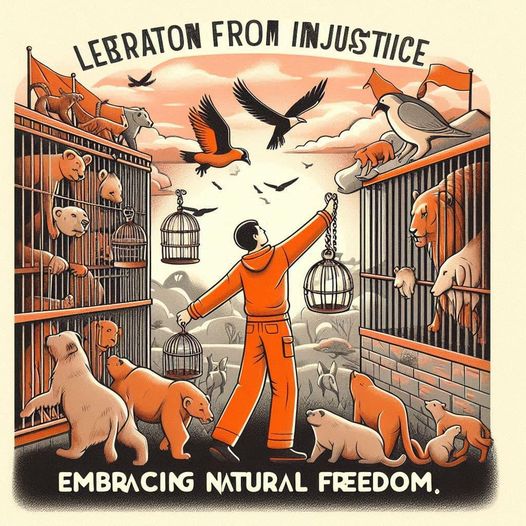
The core purpose behind establishing a government within any state is to maintain law and order, safeguarding the lives, wealth, dignity, and protecting the identities of its citizens, including their ethnic, religious, and language identities.
This fundamental objective underpins the very existence of a government. Through paying taxes, participating in elections, and acknowledging the authority of the government, including granting permission to police officers to enforce traffic laws, we collectively strive towards the singular goal of upholding peace in our society.
Many of the injustices we witness, both against ourselves and animals, stem from a misinterpretation of our own nature and that of other beings. When we bring something into existence, we envision its purpose and imbue it with certain characteristics and features, defining its nature. Similarly, when the Almighty created His creatures, each was endowed with specific attributes and qualities aligned with its intended purpose.
In understanding human beings, we explore their defining qualities and unique characteristics, which form the basis of our knowledge and doctrines. Similarly, zoologists analyze the nature of animals to discern their intrinsic capabilities, informing disciplines such as zoology. Our decisions in life are heavily influenced by our comprehension of nature; therefore, establishing a correct and balanced view of it is crucial for making sound judgments.
For instance, confining animals to cages in a zoo contradicts their natural environment, constituting injustice. Likewise, human beings desire justice, fair treatment, and dignity. These claims are rooted in an understanding of human qualities and characteristics. Decisions regarding tyrannical regimes, oppressive leaders, war criminals or unjust practices are based on this understanding.
Humans inherently recoil from witnessing injustices inflicted on others due to their intrinsic sense of justice and empathy. When confronted with scenes of human suffering, oppression, or destruction of identity, such as attacks on places of worship, individuals experience strong emotional reactions rooted in their understanding of human nature and their longing for fairness and dignity. However, despite this innate aversion to injustice, individuals may struggle to manage their emotions in the face of overwhelming atrocities, compounded by feelings of powerlessness. Additionally, biases can distort judgment and exacerbate negative emotions, leading to irrational responses. Terms like Islamophobia or antisemitism emerge when these biases translate into discriminatory attitudes and behaviors towards specific religious or ethnic groups, perpetuating further injustices and widening societal rifts.
Moral decisions in organizations like the UN are grounded in the study of human nature rather than religious texts, emphasizing the importance of understanding the nature of things in arguing and critiquing.
In conclusion, rather than opposing our nature, let us strive to align with it, fostering a society based on justice, empathy, and dignity.

